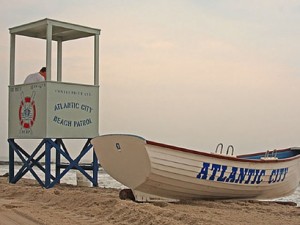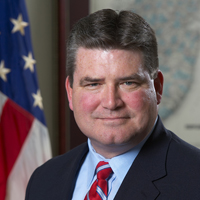 New Jersey can’t add new casino or racino sites until late 2016, per Gov. Chris Christie‘s rescue plan. But lawmakers may not wait that long. A 2015 statewide ballot question to add new gambling jurisdictions is “a very real possibility,” according to state Senate President Stephen Sweeney. Coming from a stalwart Atlantic City defender like Sweeney, this is not good news for the Boardwalk. The city is still reeling from a tongue-lashing from Deutsche Bank analyst Andrew Zarnett, who wrote that “it’s time for operators and politicians to stop dreaming about a false Atlantic City recovery.” Zarnett opined that the present 10 casinos need to be winnowed down to seven, maybe even six. Harsh words.
New Jersey can’t add new casino or racino sites until late 2016, per Gov. Chris Christie‘s rescue plan. But lawmakers may not wait that long. A 2015 statewide ballot question to add new gambling jurisdictions is “a very real possibility,” according to state Senate President Stephen Sweeney. Coming from a stalwart Atlantic City defender like Sweeney, this is not good news for the Boardwalk. The city is still reeling from a tongue-lashing from Deutsche Bank analyst Andrew Zarnett, who wrote that “it’s time for operators and politicians to stop dreaming about a false Atlantic City recovery.” Zarnett opined that the present 10 casinos need to be winnowed down to seven, maybe even six. Harsh words.
Paradoxically, both Sweeney and Meadowlands casino enthusiast Asm. Ralph Caputo (D) tried to package the idea of additional, outstate casinos as A Good Thing for the Boardwalk. “Atlantic City is under tremendous strain, and we can’t just abandon them,” said Caputo whilst doing precisely that. However, unlike Atlantic City’s, Caputo’s theoretical new casinos would taxed at a near-prohibitive 50% rate.* The money would ostensibly be used to help Atlantic City.
(*–For all their low-tax talk, has their ever been a casino company that balked at a new jurisdiction because the taxes were too high?)
 This has inspired much counterintuitive verbiage. “By co-branding new gaming venues with the global brand Atlantic City already has built up, and by leveraging loyalty programs, we can help make Atlantic City a preeminent destination location,” said state Sen. Steven Oroho (R).
This has inspired much counterintuitive verbiage. “By co-branding new gaming venues with the global brand Atlantic City already has built up, and by leveraging loyalty programs, we can help make Atlantic City a preeminent destination location,” said state Sen. Steven Oroho (R).
Those tax dollars had best go into diversifying the type of attractions found in Atlantic City. Just having more gambling around the state for its own sake isn’t going to accomplish much.
It’s extension time (again) for southeastern Massachusetts, where interested casino operators and willing host communities are hard to find. Casinos will now have until Sept. 30 to file applications. KG Urban, which has a project in New Bedford, is crying foul, but this is good news for everybody else who’s flirting with Region C. Foxwoods Resort Casino has shown some ankle to both Fall River and New Bedford, the Mashpee Wampanoags — in Taunton — are enmeshed in red tape, and both Clairvest Group and Claremont Cos. are still looking for a place to land.
Backers of Repeal the Casino Deal are confident that, if their ballot  initiative passes, it will knock both the Mashpee and Aquinnah Wampanoags out of the box. The Aquinnah, in particular, they argue, are going back on a 1993 deal not to “exercise sovereign jurisdiction” over 400 hotly contested acres on Martha’s Vineyard. The tribes are keeping quiet in the face of barbs from RCD. The latter believes its petition overrides any state-tribal compact the state negotiated with the Mashpee band. To this, Gov. Deval Patrick‘s office replies that it will “assess any ramifications of a repeal” on the compact.
initiative passes, it will knock both the Mashpee and Aquinnah Wampanoags out of the box. The Aquinnah, in particular, they argue, are going back on a 1993 deal not to “exercise sovereign jurisdiction” over 400 hotly contested acres on Martha’s Vineyard. The tribes are keeping quiet in the face of barbs from RCD. The latter believes its petition overrides any state-tribal compact the state negotiated with the Mashpee band. To this, Gov. Deval Patrick‘s office replies that it will “assess any ramifications of a repeal” on the compact.
One loophole might give the tribes hope. Under a repeal, they couldn’t hope for Class III status. But games in which players compete against one another — poker, bingo, e-bingo — might still be permissible. And it’s not necessarily small potatoes. “The Seminole Tribe of Florida built a $2 billion a year gaming empire on Class II gaming,” notes the University of Massachusetts at Dartmouth‘s Clyde Barrow.
Region C applicants will have until March 27 to executive host-community agreements and hold referendums on their projects. Nobody will be able to say the procedure in Massachusetts was rushed.

